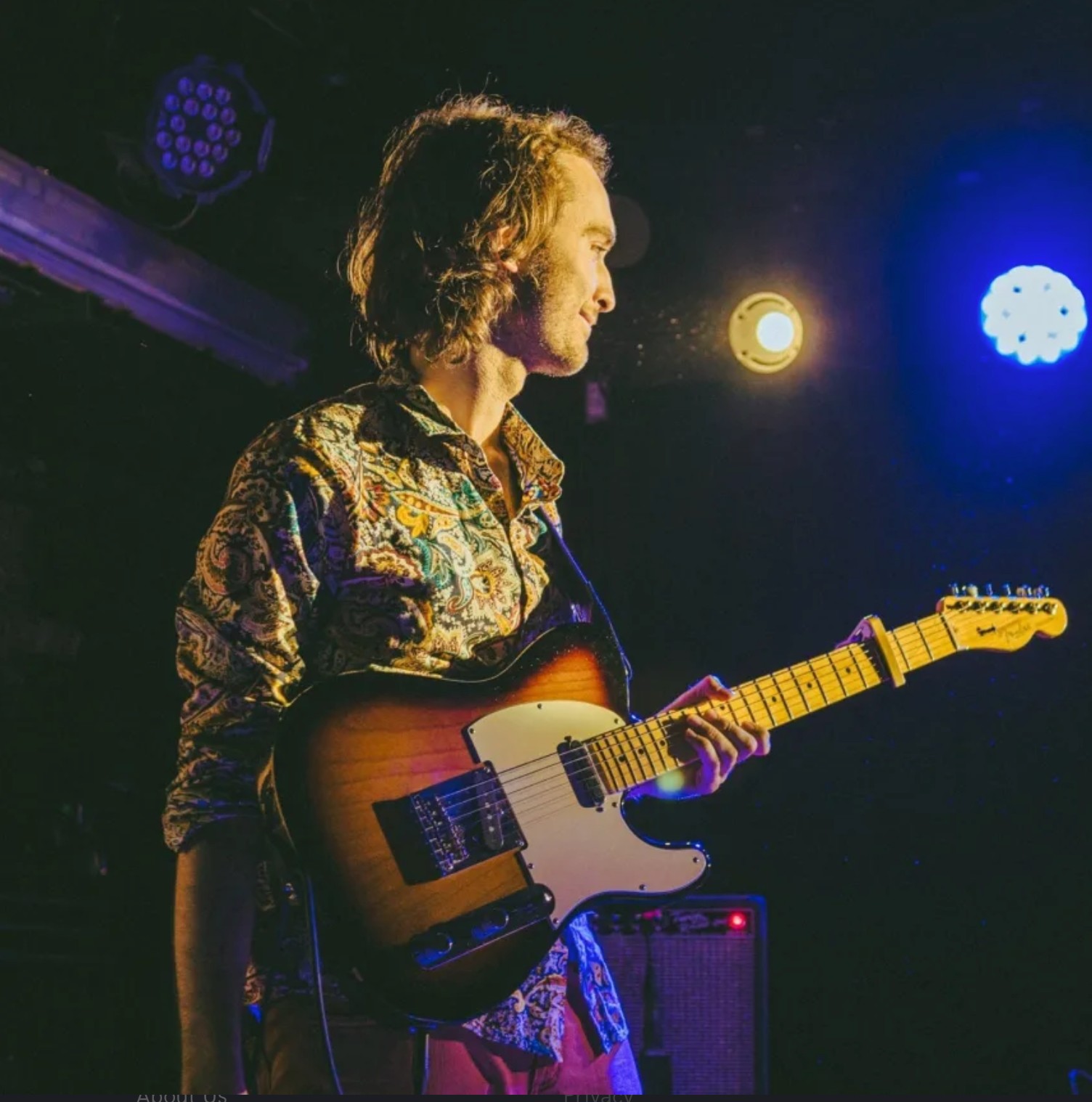We were lucky to catch up with Zach Calluori recently and have shared our conversation below.
Hi Zach, thanks for joining us today. We’d love to hear about a project that you’ve worked on that’s meant a lot to you.
As a guitarist, I am constantly creating moments; every time I play, the notes ring and seconds tick. What came before is lost to the past, glimmering ever so slightly longer in our minds. But as a musician who self-engineers, produces, and mixes, I have the ability to weave moments into permanent tapestries. I value this, and as my career has progressed, I find myself placing more and more emphasis on recorded works. I relish the opportunity to consider the music I make from every angle and to refine it. Furthermore, as a composer and songwriter, I believe it is valuable to enshrine my creative output in this timeless format.
This is all to say that the projects that come to mind, inevitably, are recorded works. I think, also, that the most meaningful projects I have been a part of feature the most meaningful people in my life. Naturally, then, I think of my parents and a very special project that arose in 2021. I released a single called “On The 7th Hour” with my father, and my friend Andrew Shimm. My father, Ray, wrote and recorded vocals and drums for the song, which was part birthday gift, time capsule, and harbinger of a new creative well from which we continue to pull. It was very special to perform, produce, and mix this project in collaboration with my father, because, while we have performed together before, this record is something that I will always be able to return to and appreciate.
Another more recent project that I am particularly proud of is tracking guitar for Planet Earth III. The original score was composed by Hans Zimmer, Jacob Shea, and Sara Barone, and Sara is an amazing friend. We have enjoyed a long creative partnership, and I am always ready and willing whenever she calls to collaborate. She has also had a profound influence on the trajectory of my music career, bringing me into the fold of the film music world. It has stretched my imagination, sharpened my skills, and raised my ambition. It was one of the most meaningful projects I have worked on to date and a wonderful addition to our recorded legacy
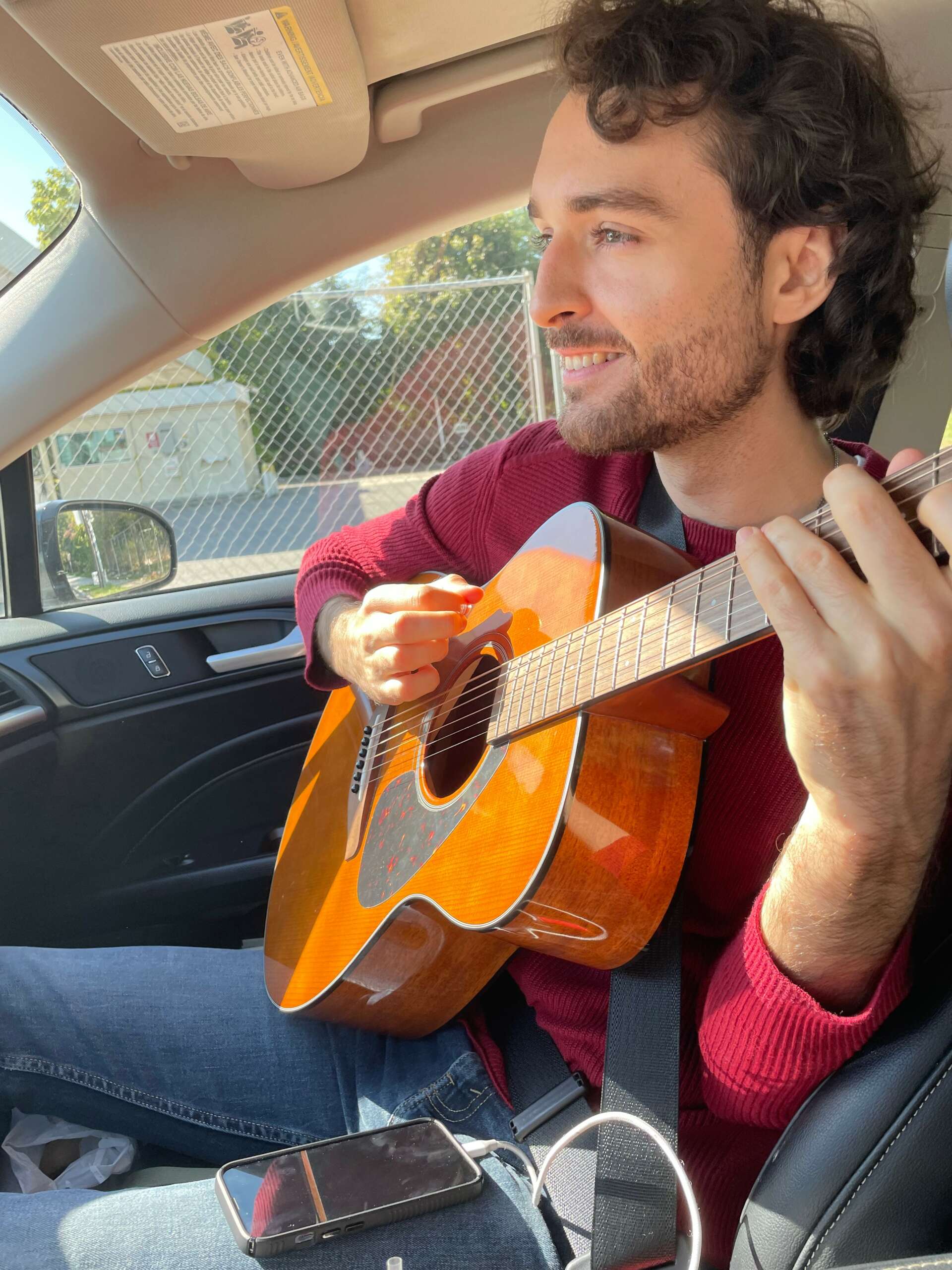
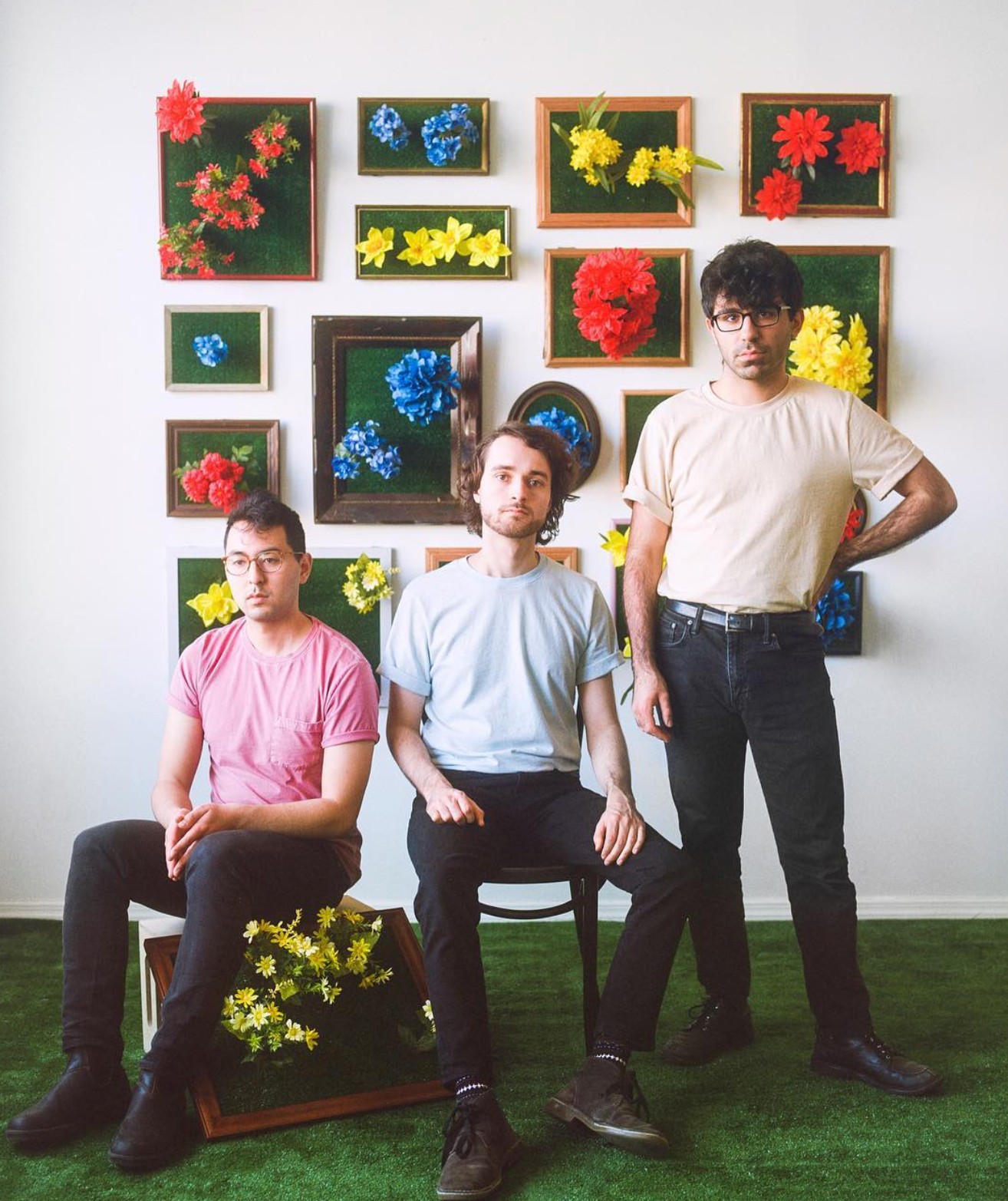
Awesome – so before we get into the rest of our questions, can you briefly introduce yourself to our readers.
I am a guitarist, music producer, and composer working worldwide to create boutique music for film, TV, and advertising.
That should encapsulate the great majority of what I do professionally, but that statement is forced to encompass multitudes. I work in different time zones, with artists, filmmakers, composers, music production companies, and brands to achieve a plethora of artistic goals. The truth of my work is wide-ranging and dynamic; one day I could be composing additional music for a feature film, another recording custom samples for a composer to use in their score, or I might just be tracking guitar for a Breitling advertisement.
My musical voice is most identified with the guitar, my primary instrument, and my 20 year fascination. I have studied the guitar, its repertoire, and its ethos with teachers such as Dave Stryker, Paul Bollenback, and Tom Harney. I am trained in jazz improvisation, and I continued to study music throughout college at Columbia University, which rounded my education and provided a foundation in classical music theory. Improvisation remains my guiding principle, however, and provides the generative spark for all that I do. I am always responding and adapting.
I spent a few years in New York City, following my undergraduate studies, exploring the live music scene and performing with numerous bands, including the elusive Drug Bug. Ever since I recorded my first album, though, I became obsessed with the recording process. For me, it was the key to expressing what I wanted to express more fully, accurately, and honestly. Every success and pitfall of that experience was a lesson, a motivation for my next steps.
I responded by expanding my knowledge of audio engineering, music production, and mixing, and, in turn, everything changed and for the better – my feel, my songwriting, my creativity in general. I gained the ability to actualize every sound I heard in my head. I painted with more colors. And, most importantly, I started to see the bigger picture.
The nature of my work began to change as well, and I adapted as a career took shape. Increasingly, I acted as the secret weapon for my composer friends, enriching their scores with guitar, bass, drum, and percussion tracks. My contributions were never just performances, though; they were laced with my production sensibility and always tempered by my sensitivity to compositional goals. If something should be recorded in stereo, doubled and hard panned, layered, widened, effected, etc., I had already thought to do it. Guitar may have been the quickest transducer for my ideas in the past, but I started to make music in the broadest and most complete sense. I was able to feel just as creative spending hours honing textures and rhythms to find exactly what unlocks a cue.
When that happens, meaning springs forth, and the picture sings in harmony. All art aspires to the musical sublime, and film composition is such an interesting site of interaction between artistic forms. I was bearing witness to the power of sound design, extended technique, new instruments, and large ensembles. And with that realization came an intense desire to not only engage in musical maximalism, but to master it.
My musical palette had to expand once again. As a producer, I focused on indie rock, R&B, and pop music, and I am very comfortable thinking in those terms. I fear the obvious, but certainly, these forms have become intuitive to me. However, when I started composing in new ways, my art, and, in turn, my potential, became limitless.
In the present day, I compose music for film and music production companies just as often as I write, record, produce, and perform with artists. In fact, probably a bit more because I spend so much creative energy working on my own recording projects, which are forthcoming. These will bear the mark of my songwriting, performance, production, and mixing, and as such, will stand as some of my most complete artistic works to date.
I love the creative activation of working on films, and I am always open to working with new directors. I also really enjoy the pace of advertising work, and I hope to collaborate with more filmmakers and brands in this space. I am always available for remote recording for any musical project. And, more and more, I am mixing songs for other people, which is something I want to offer widely.
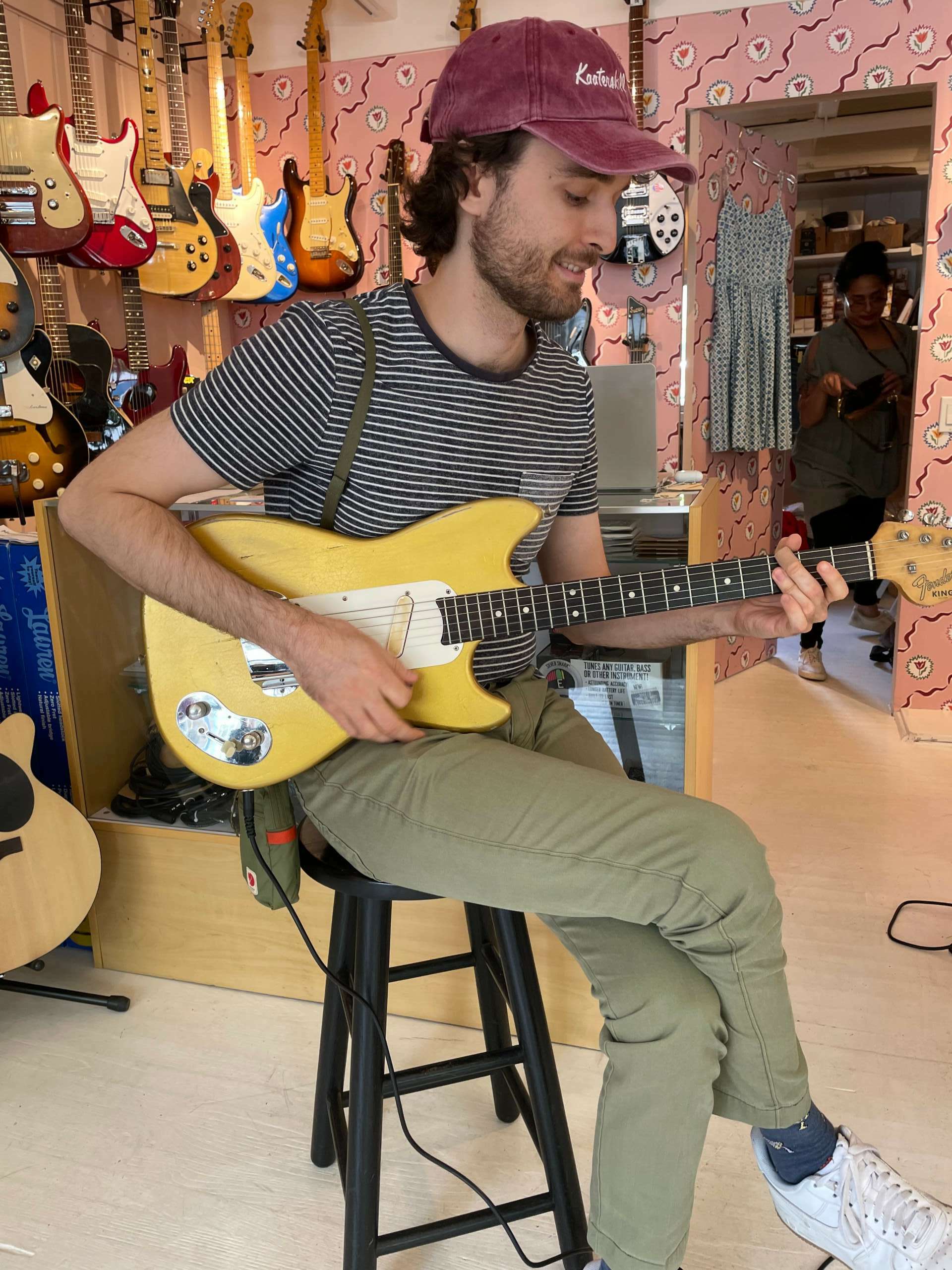
In your view, what can society do to best support artists, creatives and a thriving creative ecosystem?
We need to recognize the work, to respect it, and to pay for it every time. I am not convinced that “creative” has ever been a great metonym for skilled artists. There is a great deal of preparation that precedes excellence, and the dedication that requires cannot be understated, or worse, undervalued, as often as it is.
We are not just divergent thinkers and contrarians in a day and age where everyone has an opinion. That undersells reality; artists are curators, executives, builders, and experts in human emotion, with a wide range of skills that have intrinsic value.
I think that artists, especially with the proliferation of social media, have reasonable means to connect with one another. Fostering artistic communities, both digital and embodied, is essential. It helps to democratize knowledge, advance the craft, and amplify the art, as well as provide meaningful inspiration to all involved.
However, artists should be accepted more broadly in professional networks, and I think society needs to work towards structurally including artists in these spaces. We need artists to connect not just with each other, but with individuals or companies who need and are prepared to pay for their expertise. Artists retain the right, as anyone else, to “professionalize” or not, but it should not be so difficult to do so. For music, especially, the value of the work itself needs to be restored, the profits of streaming need to be shared, and these convictions should be bolstered by the institutions that monitor and support all other forms of contributive labor.
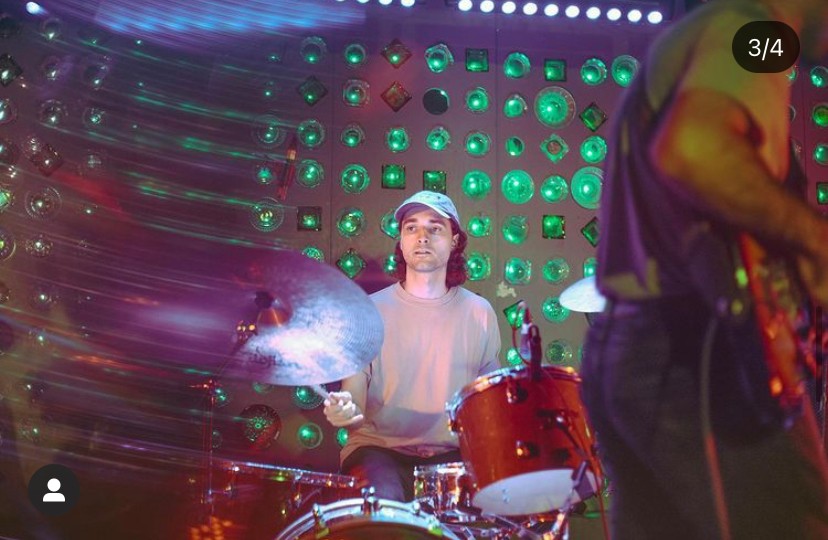
What do you find most rewarding about being a creative?
I think the most rewarding aspect of making art is the way it brings people together. I love my collaborators and friends, and making music, in particular. Music is unique. There is so much potential for it. Even if I am alone in a quiet room there’s some bit of music in my head or hands that begets the rest. I am not sure any other art can start so faint and formless but take shape so quickly. It gives every composer a sense of ownership, but the best ideas come with a bit of luck. The unseen author, the guiding hand, remains somewhat mysterious.
Just a tiny bit of attention and organization brings sound into alignment with our psychological criteria for music. I am framing something that is, in essence, already there and saying “hear this, this way”. The music starts now. As artists, we generously invite others to receive this joy that we have worked so hard to make accessible. That we have worked so hard to make sense of. Music is a complex emotion. And when we learn to create music, we learn to bring people into alignment, too. That is the gift.
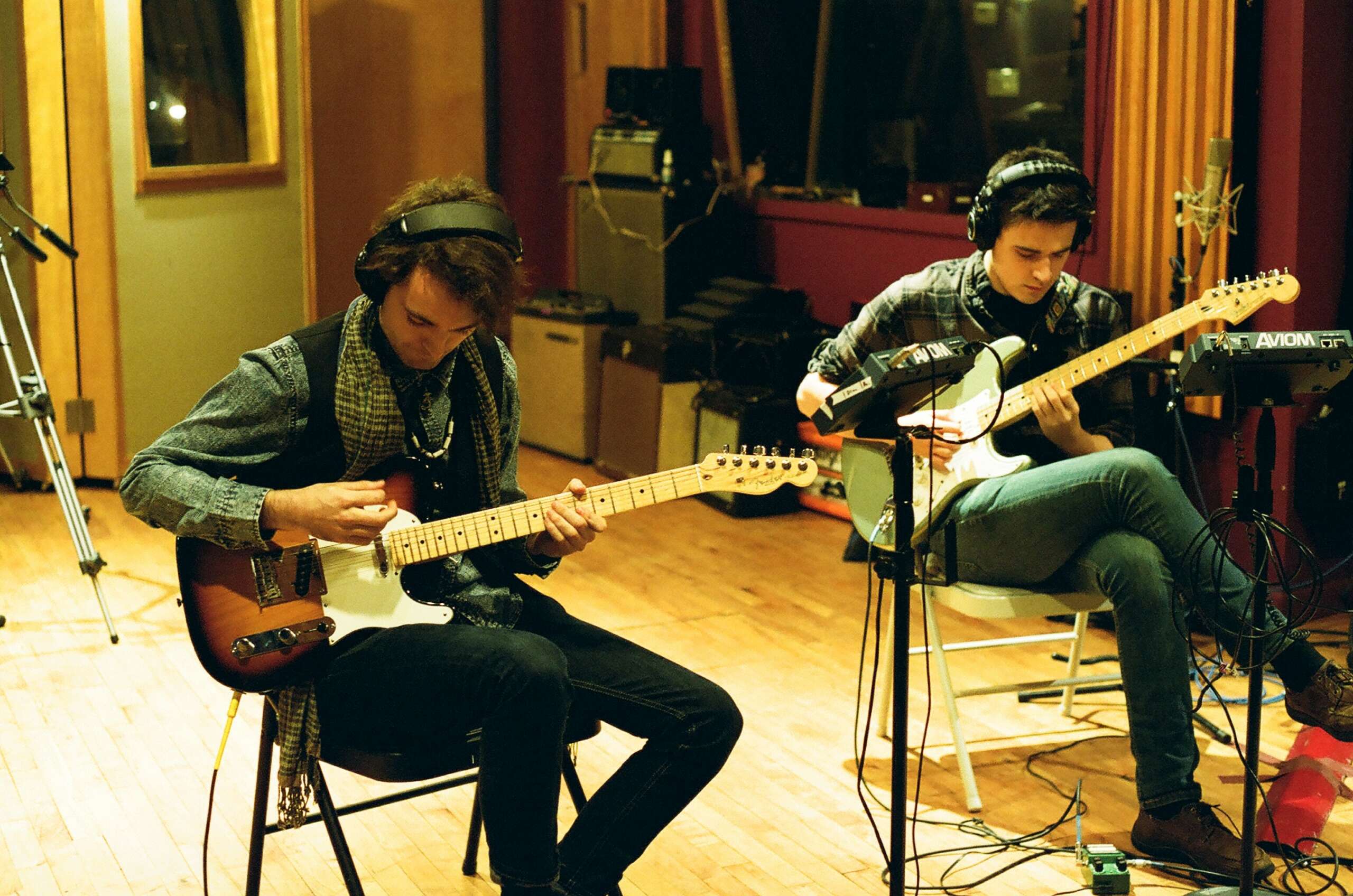
Contact Info:
- Website: https://www.zachcalluori.com
- Instagram: https://www.instagram.com/zachcalluori/
- Other: https://www.imdb.com/name/nm9285778/?ref_=nv_sr_srsg_0_tt_0_nm_1_q_zach%2520calluori
Image Credits
Alicia De Los Santos Matt Lamourt Emma Noelle Noel Woodford


